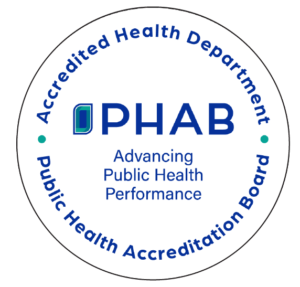What is West Nile Virus?
West Nile Virus (WNV) is an illness caused by the bite of a mosquito that can be serious.
What are symptoms of WNV?
About one in 150 people who have WNV will have serious illness with high fever, headache, neck stiffness, stupor (shocked, dazed), disorientation (mental confusion), coma, tremors (shaking), convulsions, muscle weakness, vision loss, numbness and paralysis (not able to move part of the body). These symptoms may last several weeks, and neurological symptoms, which affect the brain, nerves and spinal cord, may be permanent.
One in 20 people with WNV will have fever, headache and body aches, nausea, vomiting, and sometimes swollen lymph glands or a skin rash on the chest, stomach and back. This is called West Nile Fever. Symptoms can last for as short as a few days, though even healthy people have become sick for several weeks.
About 4 out of 5 people who have WNV will not show any symptoms at all.
How soon can people who have been bitten by a mosquito with WNV get sick?
Usually between three and 14 days after they are bitten.
Is there a treatment for WNV?
No, there is no specific treatment. There is no vaccine for WNV in humans. In milder cases, the symptoms may go away on their own. In more serious cases, people usually need to go to the hospital where they can receive supportive treatment including intravenous fluids, help with breathing and nursing care.
What should I do if I think I have WNV?
If you have symptoms of serious WNV illness like severe headaches or confusion, see your doctor right away. Pregnant women and nursing mothers should talk to their doctor if they have symptoms that could be WNV.
Who is at risk of getting WNV?
Being outside, especially from sundown to sunset, puts you at risk of getting WNV. People over the age of 50 are more likely to have serious symptoms of WNV if they do get sick and should take special care to avoid mosquito bites.
What are West Nile Encephalitis, West Nile Meningitis, and West Nile Poliomyelitis?
These diseases, also called neuroinvasive disease, are serious diseases caused by WNV that affect a person’s nervous system. Encephalitis is an inflammation (swelling) of the brain. Meningitis is an inflammation of the membrane around the brain and the spinal cord. Meningoencephalitis is inflammation of the brain and the membrane surrounding it. Poliomyelitis is an inflammation of the spinal cord that causes sudden weakness in the limbs and/or breathing muscles.
What should I do to protect myself if I am pregnant?
Pregnant women should avoid mosquitoes using protective clothing and an Environmental Protection Agency (EPA)-registered repellent (one that has been reviewed for safety by the US EPA). The US Centers for Disease Control recommends repellents containing DEET or picaridin on skin and clothing, and permethrin on clothing. Oil of lemon eucalyptus can also be used, but is not as long-lasting.
How can I protect myself from WNV?
The best way to protect yourself from WNV is to get rid of places where mosquitoes can lay their eggs to make more mosquitoes. Follow these simple steps:
- Dispose of tin cans, old tires, buckets, plastic swimming pools that are not being used, plastic covers or other things that can hold water.
- Make sure that your roof gutters are not clogged. Clean roof gutters in the spring and fall.
- Clean swimming pools, outdoor saunas and hot tubs. Use chlorine according to the manufacturer’s instructions and keep pools, saunas and hot tubs covered when no one is using them.
- Empty and change the water in birdbaths, fountains, wading pools, rain barrels and potted trays at least one time every week.
- Fill or drain puddles, ditches and swampy areas. Get rid of, drain or fill tree holes and stumps with cement.
- Get rid of standing water from cisterns, cesspools and septic tanks.
- Get rid of standing water in areas where animals eat.
- Water your lawn carefully so that water is not standing there for days.
- Fix torn screens or get new ones.
It is best to stay indoors from sundown to sunset when mosquitoes are most likely to be around. If you must go outdoors at these times:
- When you are outdoors, use insect repellent that have DEET, Picaridin (KBR 3023), Oil of Lemon Eucalyptus (PMD), or IR3535. Follow the directions on the package.
- According to the United States Centers for Disease Control, there have been no reports of problems with pregnant or breastfeeding women using repellents with DEET or Picaridin.
- If you are concerned about using repellent products on children you may wish to consult a health care provider for advice or contact the National Pesticide Information Center (NPIC) through their toll-free number, 1-800-858-7378 or npic.orst.edu.
- Wear long-sleeved shirts, long pants and socks when you are outdoors, especially from sundown to sunset.
- Replace outdoor lights with yellow “bug lights.”
- Call the Lake County General Health District at (440) 350-2543 if you are worried about standing water.

